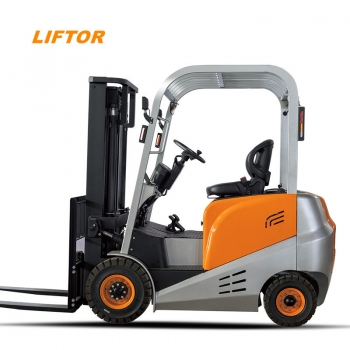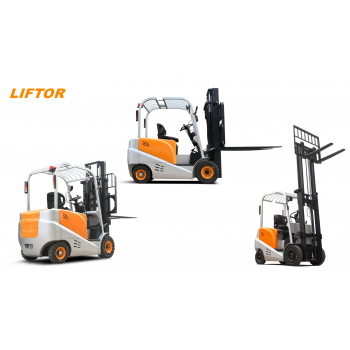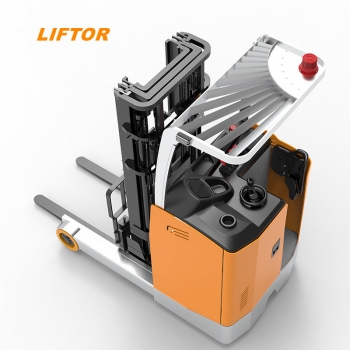Introduction: LIFTOR Electric Forklifts have become a reliable and eco-friendly solution for efficient material handling. To ensure optimal performance and longevity, proper maintenance is crucial. In this guide, we will explore essential maintenance practices for LIFTOR Electric Forklifts, enabling you to maximize productivity and minimize downtime.
Regular Inspections: Conduct daily visual inspections for damage, wear, and leaks. Pay attention to tires, forks, hydraulic hoses, and connectors. Address any issues promptly.
Battery Maintenance: Keep the battery clean and check electrolyte levels regularly. Inspect cables and connectors for damage. Follow manufacturer's guidelines for charging and storage.
Proper Charging Practices: Charge the battery in a designated area with proper ventilation. Follow manufacturer's instructions for charging times. Avoid operating with a partially charged battery.
Lubrication and Fluid Checks: Regularly check and replenish fluids such as hydraulic oil. Lubricate moving parts according to manufacturer's guidelines.
Tire Maintenance: Inspect tires for wear and replace damaged ones promptly. Follow proper tire inflation guidelines for optimal traction.
Operator Training and Safety: Ensure operators are trained on proper operation and handling. Emphasize safe driving and load handling techniques. Encourage reporting of abnormalities.
Conclusion: By following these maintenance practices, you can optimize the performance and lifespan of your LIFTOR Electric Forklifts. Regular inspections, battery maintenance, proper charging practices, lubrication, tire maintenance, and operator training are key to maximizing productivity while ensuring safety and equipment longevity.
Regular Inspections: Conduct daily visual inspections for damage, wear, and leaks. Pay attention to tires, forks, hydraulic hoses, and connectors. Address any issues promptly.
Battery Maintenance: Keep the battery clean and check electrolyte levels regularly. Inspect cables and connectors for damage. Follow manufacturer's guidelines for charging and storage.
Proper Charging Practices: Charge the battery in a designated area with proper ventilation. Follow manufacturer's instructions for charging times. Avoid operating with a partially charged battery.
Lubrication and Fluid Checks: Regularly check and replenish fluids such as hydraulic oil. Lubricate moving parts according to manufacturer's guidelines.
Tire Maintenance: Inspect tires for wear and replace damaged ones promptly. Follow proper tire inflation guidelines for optimal traction.
Operator Training and Safety: Ensure operators are trained on proper operation and handling. Emphasize safe driving and load handling techniques. Encourage reporting of abnormalities.
Conclusion: By following these maintenance practices, you can optimize the performance and lifespan of your LIFTOR Electric Forklifts. Regular inspections, battery maintenance, proper charging practices, lubrication, tire maintenance, and operator training are key to maximizing productivity while ensuring safety and equipment longevity.



